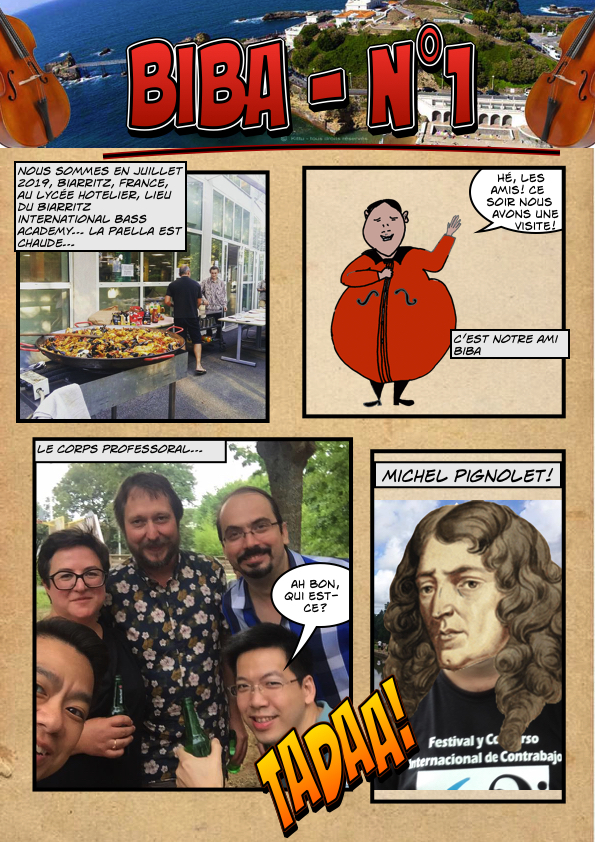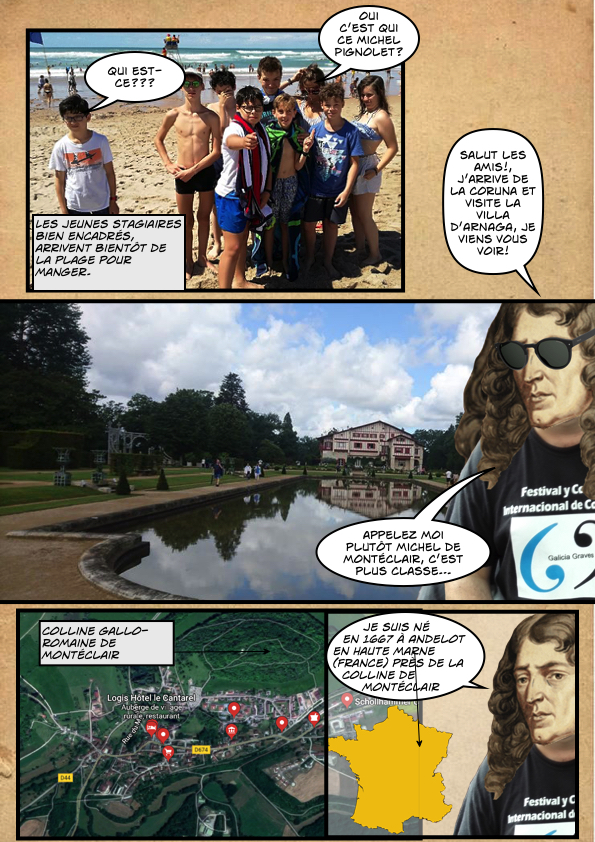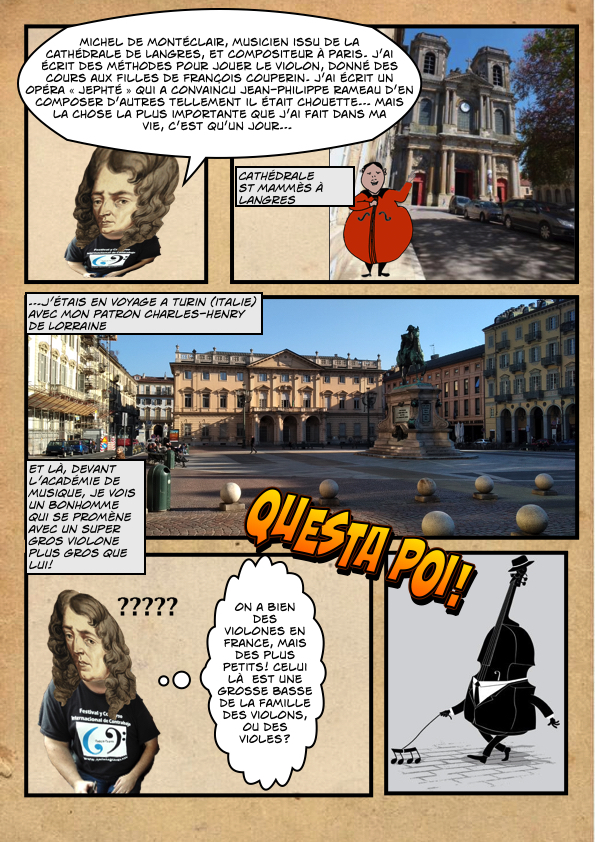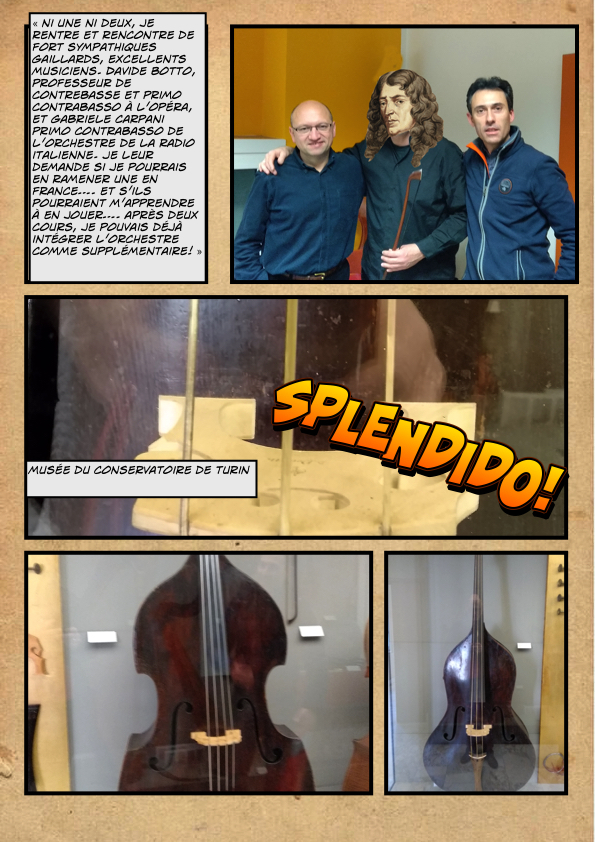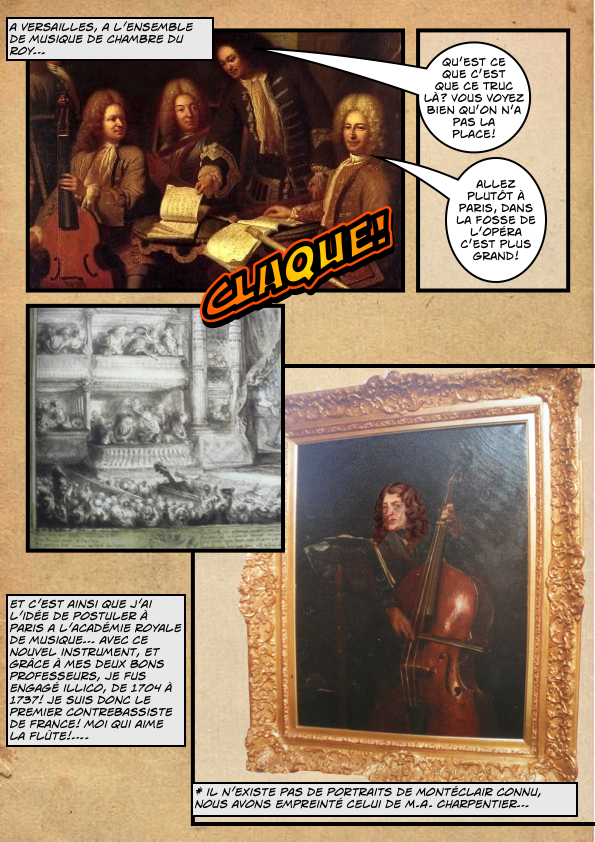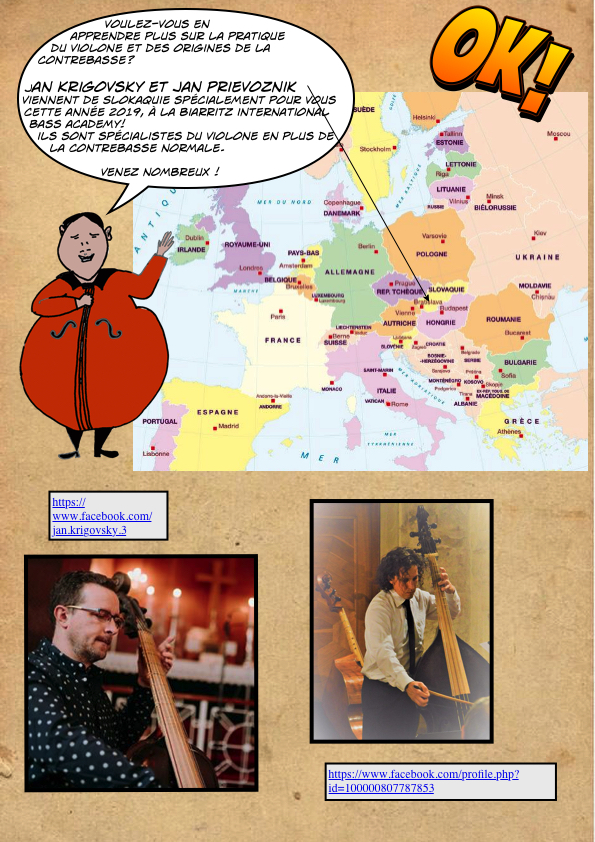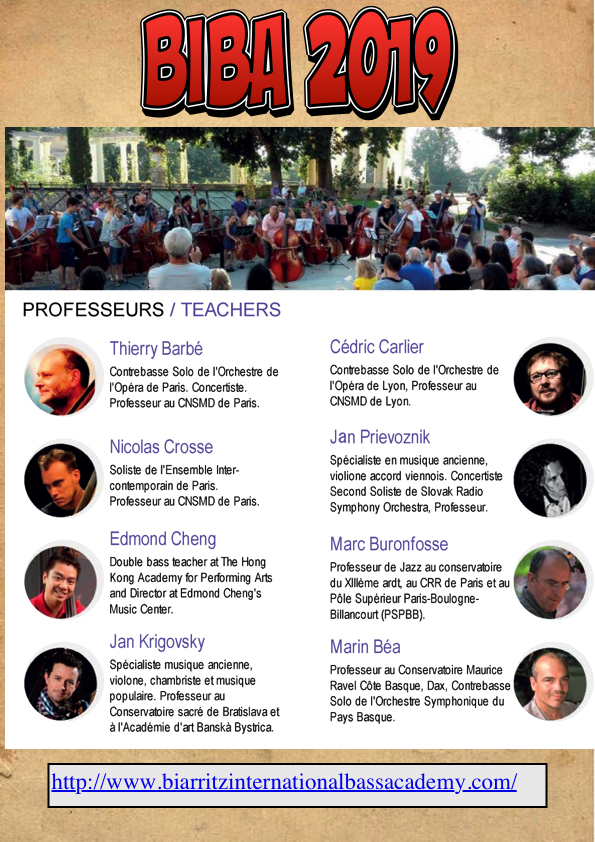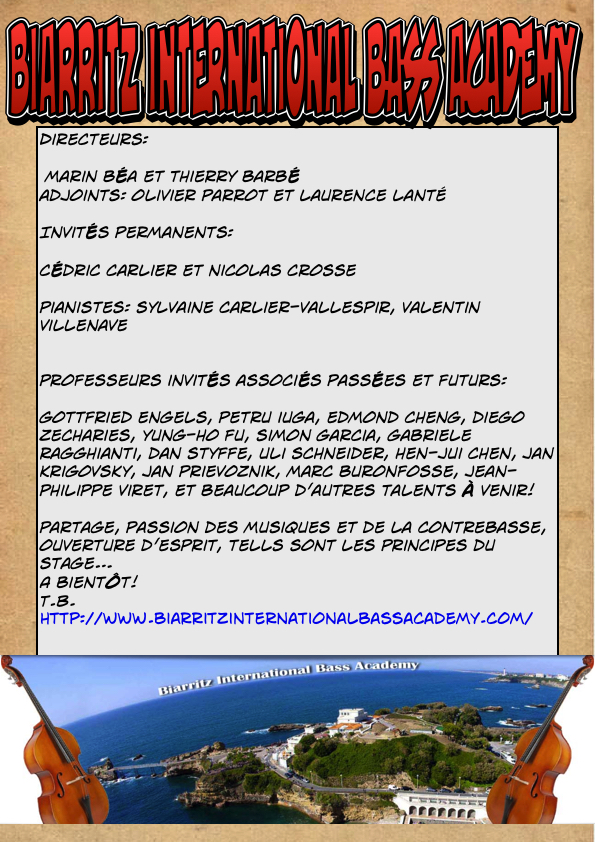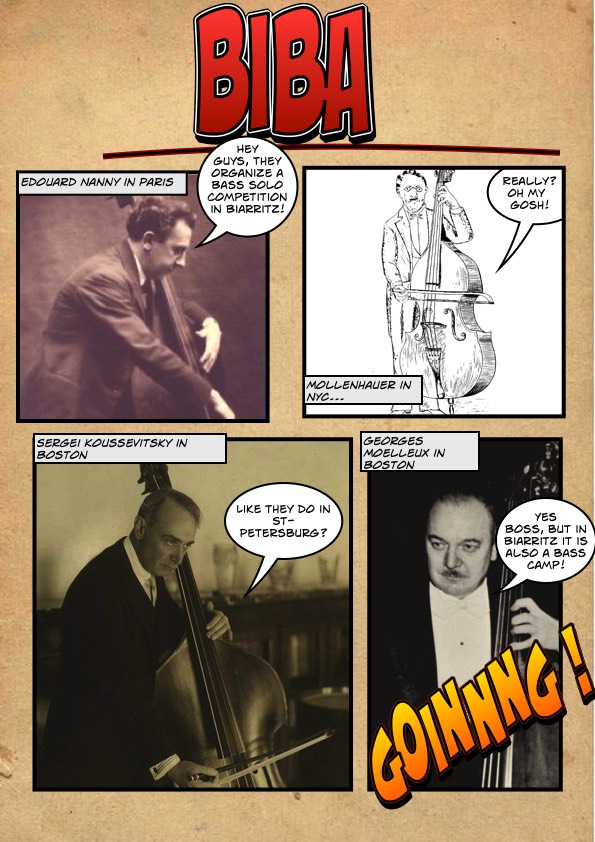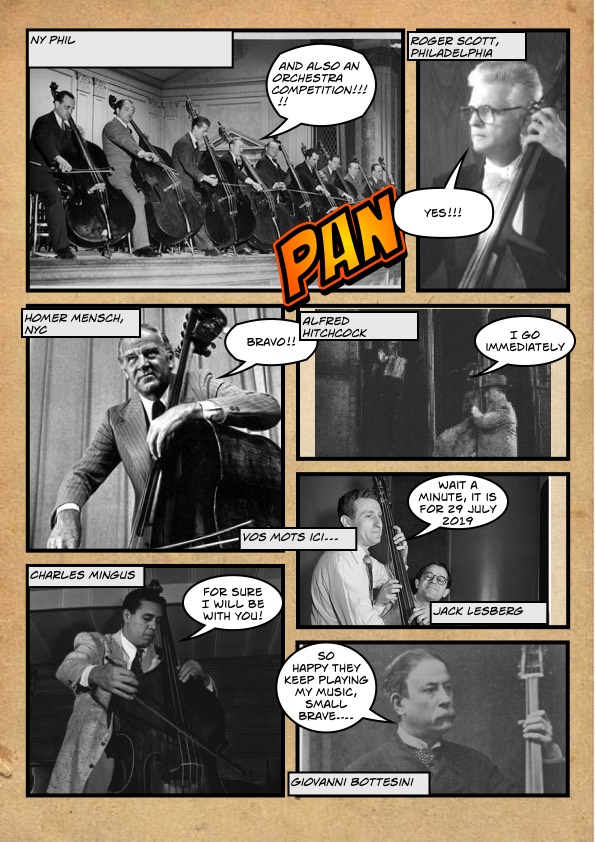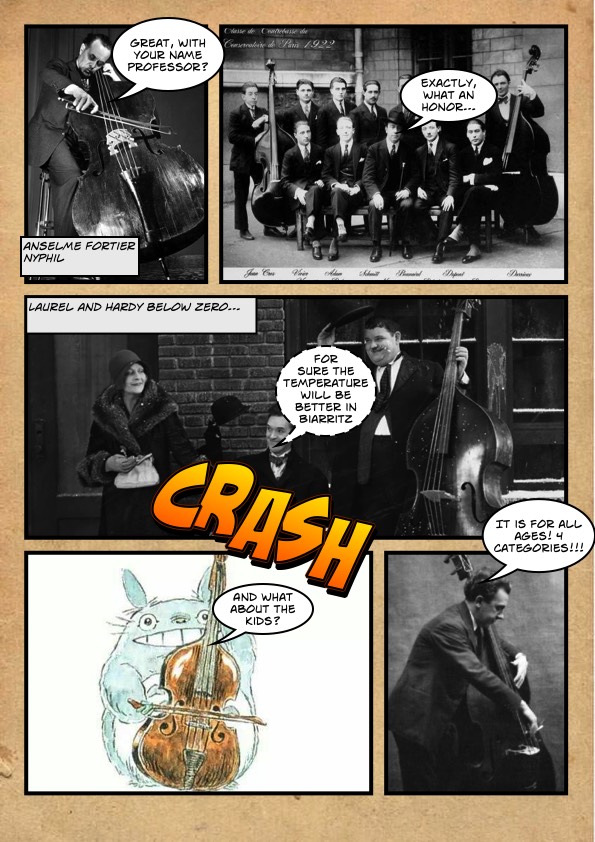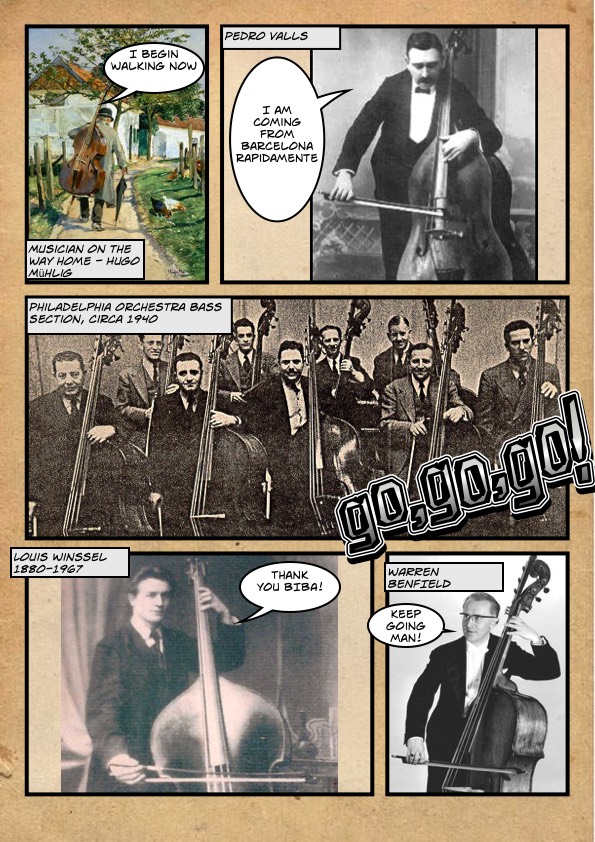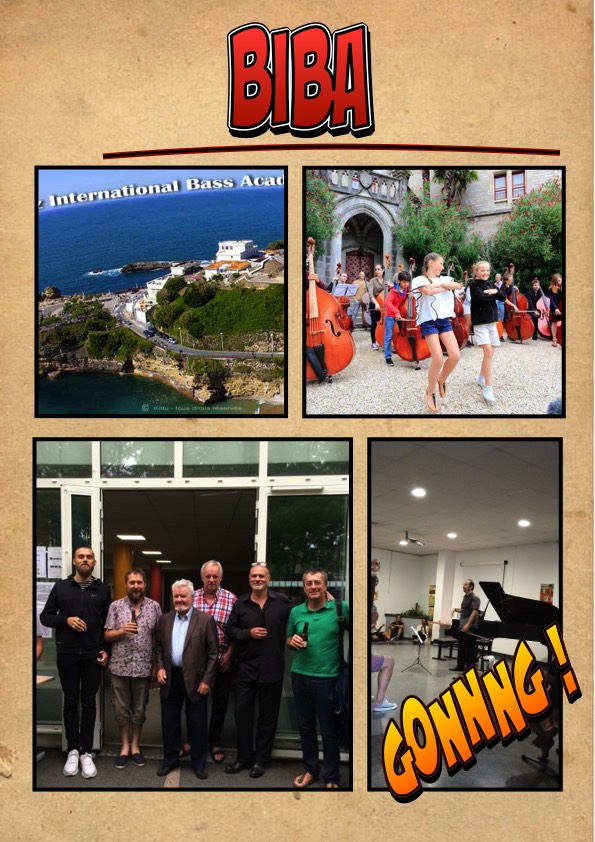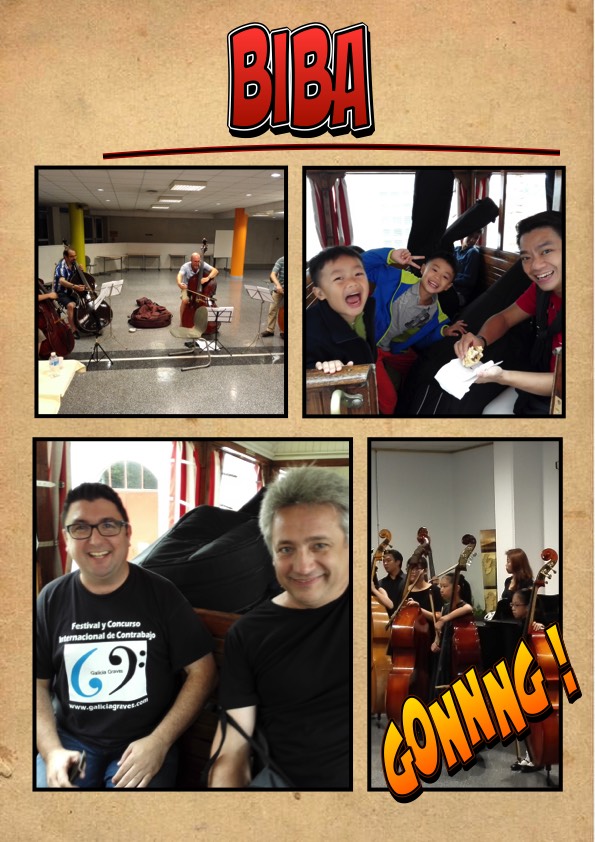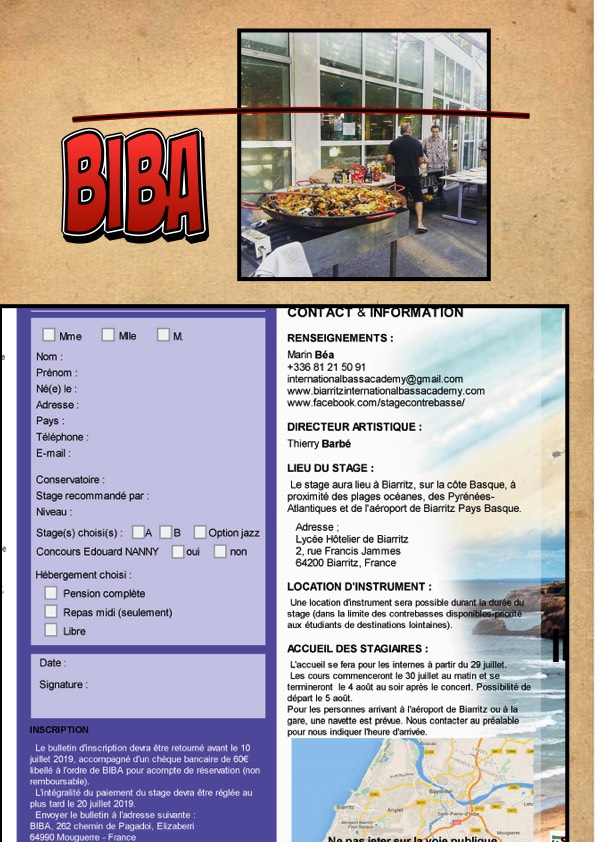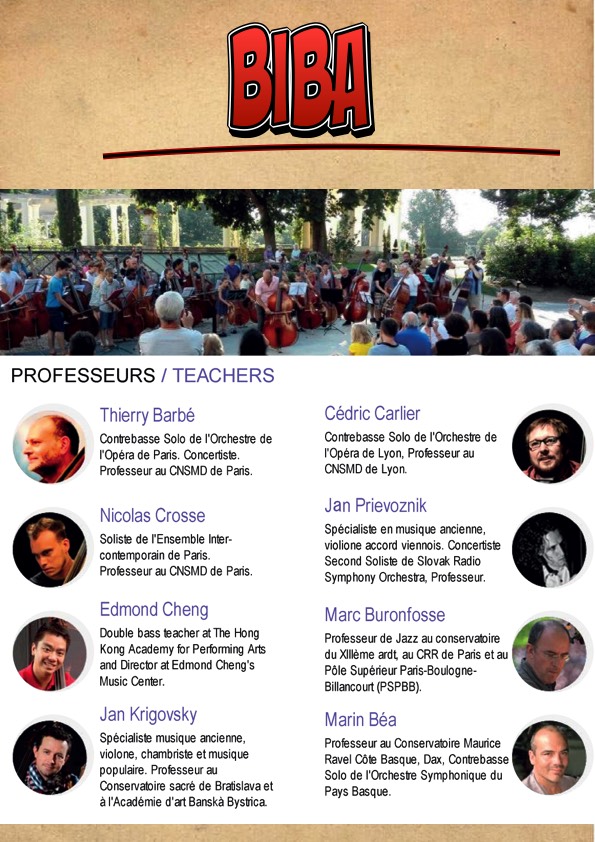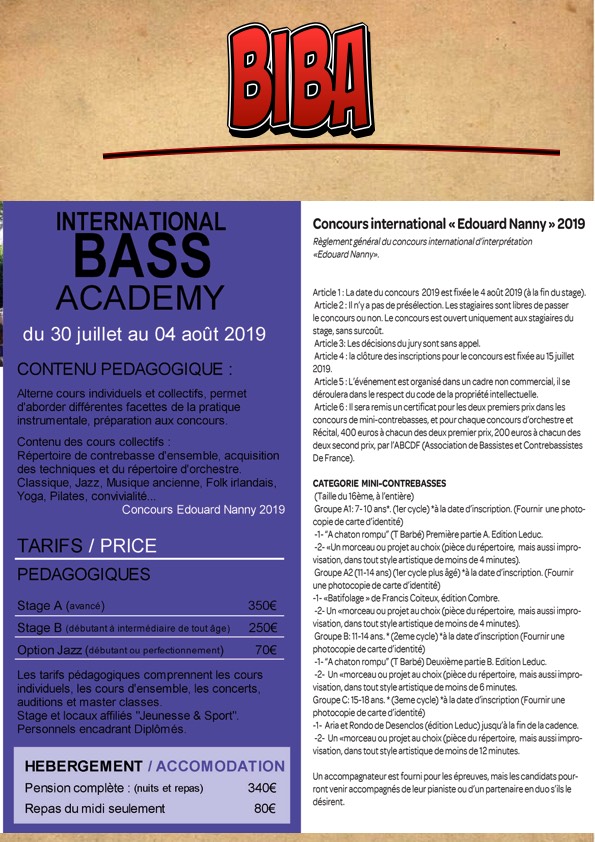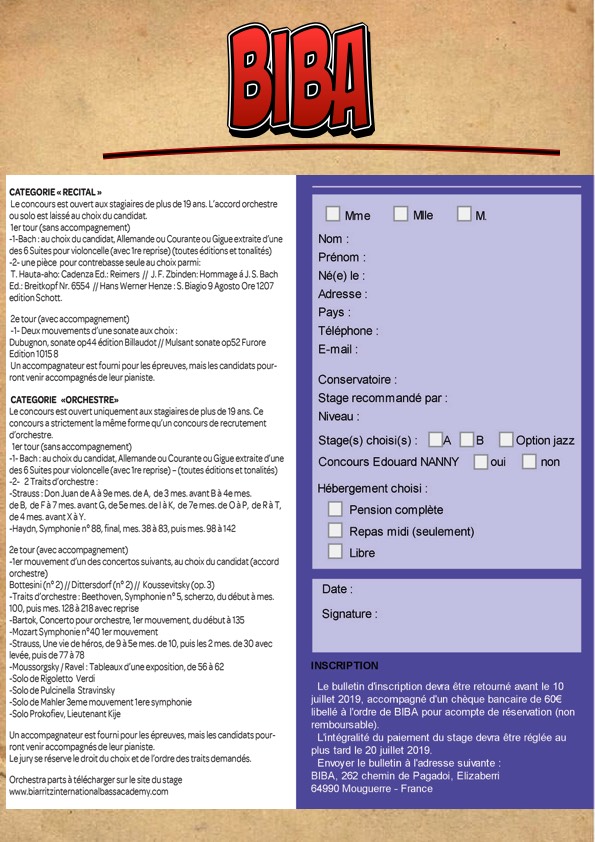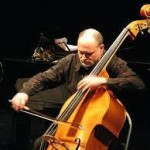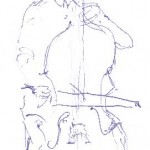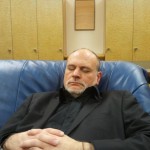
http://www.grajnisko.pl/thierry-barbe/
Hello! These are the questions that I would like to ask you:
1. Why did you choose the double-bass? Was there any other instrument, that you have played before?
TB : Yes I played the piano from 11 to 16 years old in a little school of music, and my piano teacher was also double bassist in the Philarmonique Lorraine Orchestra ( my native city, Metz, east France). As I was serious, she presented me to her husband, principal bass in this orchestra and professor at the Metz conservatoire. My dream was to play violin, ( I liked so much the sound) and I said, yes, double bass is a big violin, I like so much music, that with double bass I will enter in the conservatoire. Professor Maurice Leblan, pure french school, was talented, and played really good with a nice vibrato. I was passionnate with classical music, and after 2 years, I forced him to let me go in the conservatory ‘s orchestra.
2.Who was your first teacher?
TB : Mr Leblan is coming from Lille, and entered Paris conservatory under professor Boussagol. He was perfectionnist and played wonderfull. He had very big hands and muscles…. a best, to play bass naturaly… In his hands, any bass and bow sounded perfect… the mass of his body and his great technique, his perfect pitch, his sense of exactitude made all. Some first pieces that I heard him playing with advanced students where Dragonetti and Dittersdorf concerti, pieces from Serventi, Desenclos and Hindemith sonata. Delightfull lessons to hear for a beginner… Then I heard a recording of Henze cto by Gary Karr. He had at this time a nice vibrato too. Those both expressive ways of playing convinced me that double bass had to be played as a violin. The very nice sound of my second teacher Jean-Marc Rollez in Paris conservatory confirmed me also in this opinion, with more virtuosity.
3. Who was the person that influened you the most?
TB : From those 3 persons, I will advantage the first, because his sense of perfection was more equilibrated. He was the typical case of un unknowed artist very talented. Touching, isn’t it?
4. As I remember from our chats, you’re very interrested into expressing yourself on the stage. What is your conception of teaching this your students. In other words do you have any special method to convince them to do so, or you just support their natural inclinations?
TB : Some of us have naturaly the sense of the scene, which means that their attitude is convincing for the public. For instance some artists are playing with sincere passion, warm sound, demonstrative gestures ( not too much please), they engage all what they are humanly, it must go out… Of course the public in its diversity reacts differently sometimes. We can like or not. In order to correct this, it is highly recommended to think , as it should be normal, first to the composer, style and period of the piece, and to rend what is truely written. This way should make it better, because it can domesticate an excessive personality.
On the other hand, some of us are opposite: they don’t want to express themselves, prefer staying in the section of an orchestra. They play exactly what is written, but we don’t feel anything, because the human artistic expression is absent. For them, I try to simulate the personality, to activate the internal fire .
Of course, we are never only black or white, we have a mix, but there is a dominant, against it is not possible to fight.
This is why those individual characters orient us more rather to barock, or classic- romantique, Jazz, or contemporary music.
5. How important was for you to work as a principal bassist. How strong did it influence your solo playing and your teaching?
Beeing a principal bassist means that : 1- you can hear yourself playing in the orchestra because you are first, and the conductor and others also… 2- you have the responsability to give the attack to the section, keep the tempo and take care to the rubatos and to the dynamics 3 you play the solo when there is one 4- You decide the bowings 5- you have the responsability to maintain a good work ambiance and you have to be in constant sociable mood. 6- you are supposed to have good relations with the conductors… 7 It is recommended to like this responsability naturaly.
This fonction stimulate my practicing and my recital activity, because we need to be in good condition in the orchestra. About teaching, we know better how things happen in the professionnal life, we are more often in the orchestra jurys, so we have a better experience for the orchestral excerpts and the attitude to have in auditions, as coach for the students
6. what are your impressions about french or german bow? What was the reason for you to play the first one?
TB : I learnt first french bow as used in my country. The common ideas of french (not very open people) is that the under hand grip manipulate the bow less easily, like a long scale that we carry from the botton and not in the middle. They always defended the over hand grip, first against the Dragonetti bow and Cherubini around 1830. They invented a mix with the Tourte french bow frog with the head of the Dragonetti bow. Then I understood that french bow grip, similar to cello as I had been taught, requires big strong hands to avoid tireness. Rollez invented a new grip to avoid that and to get more density, but it was bad for a naturel spiccato because it was based to much on the First finger and thumb, the hand completly balanced on their side. I invented another one more in the way with the french and italian traditionnal schools : finger more perpendicular to the frog, but what was new is the second and third finger gripping under the frog, to help the thumb and to have also a dense sound. When I studied Under hand bow, I found the same different characters of the grips about density, between austian, tcheque, american, polish school grips. I even, you can imagine invented mine, a mix between all, in order to have the density I like. Of couse, speaking about sound is the main purpuse for me, and I am convinced that the differences between the bass sounds are not coming so much from the bows, but rather frome the basses and their regulations. The orchestras sound different in Germany than in France because the basses are different, not so much the bow. I can get the same sound with any bow on a bass. The sound is in our internal ears. The tastes and tradition of sound are different. This is why I like double bass, a very interesting instrument. Now, I over-passed 30 years in my orchestra, and yes, I use both bows during my long evenings in Opera. The under hand grip is taking care better of my shoulder than the over hand, but the over hand takes care of my elbow better than the Under hand grip. You see that the one is complementary to the other, considering the matter of health. For my recitals, I keep my native bow, as like a cello recital. My conclusion is so that we need both bows for question of health in our long professional orchestral life, and because it is so interesting….
7. You perform a lot of transcriptions. What is the reason of this decision? And what new challenges did it bring for you?
TB : We fall in love with a nice piece that is well known from the violin or cello repertoire: let’s play it ! the public needs to listen confortably some knowed pieces in a recital program, and some discovers. We have a huge original repertoire for our instrument. Hard contemporary music bassists, who dislike romantique and classic music, generaly say that repertoire does not exist, but this is not true. What is true is that our numerous composers are generaly not so well known for a normal public. But we would need a life to play all our original music…
Playing a cello , viola, violin piece is challenging. We have to find new fingerings, new combinations. But the fondamental reason is that I am a singer in my nature. In any instrument community we find the two kinds of natures : rather rythmique or rather melodique. If all double bassists where only from the rythmique side in the classic music, our life accompagniement fonction would be less sensible. Let some of us sing if they want, and let the others playing rythmic music. But in Jazz also, we find melodic bassists…. ( Scott Lafaro where one of the first for instance…)
8. You are a member of jury of many competitions. What are your impressions about this work and how much did it influence your own playing?
TB : I regret that being a jury member cut a normal human contact to share with the candidates. I am happy when I can speak to them after the competition. But it is too much rare. We must also be carefull to suceptibility. The competition is for me a great observation moment of our various parameters, technique, basses, bows, bodies, hands, arm proportions, attitudes, postures… I always note about the instruments, strings, sometime I draw the player with his ( her) bass position. I appreciate the good candidates, and I engage my personal taste only for the final round. This expérience does not influence too much anymore my own playing, but gives me expérience to affinate the bass techniques according to the different kinds of bodies-players. My pedagogic passion is to observe the relations between the physical caracteristics of people’s body and the double bass.
9. You’ve gained experience as a professor of Paris Conservatory, and giving a lot of masterclasses. How much it is important for you to get a contact with younger bassists, and does it influence your own development?
TB : Of course, I learn always much with students, ( same reasons that said 8) and here the contact is great, with a real exchange, which can include also by transitivity exchange with their teachers. I really appreciate. I like also the process of « explaining » to people and to get results, even if it is later. I don’t like to be superficial in master classes, I try to speak on every parameters that the student needs to improve. It can be like a doctor. We fix the goals for making music, I mean phrases, dynamics, ambiance, sound quality and this lead us on technique and body parameters considerations. In my classes in the CNSMDP and the CRR St-Maur ( east suburb close to Paris), this is of course not diagnostic, but a longer building process, assited by me, plus the work of the huge repertoire. The more people we meet, the more reachest we become…. And the more reachness we can give… this is life…
10. What are your plans for the nearest future?
TB : The nearest future which will give a lot of fun for me is to play Dvorak concerto with an amator orchestra with a High C in solo tuning. ( means High D). I want to explore more this tuning, that I already tryed with the Dubugnon Mikroncerto, and that we need for the Poradowski concerto if with orchestra.
TB : In conclusion, thank you Donat for your intelligent 10 questions, I am sure that you knowed already the answers, and that you share my opinions….
Thierry Barbé, 17-sept 2013

